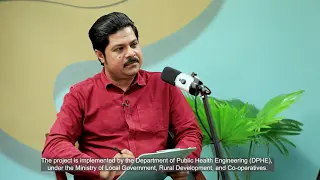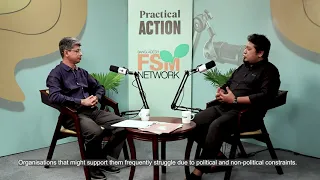Sustainable Development Goal (SDG) 6 aims to ensure the availability and sustainable management of water and sanitation for all. The UN's SDG 6 Synthesis Report 2023 highlights that while some advancements have been made, significant challenges persist and there is a critical need for robust capacity building at all levels to accelerate progress and achieve SDG 6.2 by 2030. In this episode, we explore the urgent need to empower governments, communities, and organisations with the knowledge and tools they need to overcome these challenges. The discussion covers training for sanitation professionals, strengthening institutions and policies, improving data systems, boosting financial planning, and engaging communities in decision making. We also look at how capacity building can address rapid urbanisation and climate change, making sanitation systems more resilient and inclusive. This discussion is all about how effective capacity building looks like and how collaboration between all stakeholders can accelerate progress toward safe sanitation for everyone in Bangladesh. Guest: Dilruba Farzana - Deputy Project Director, Department of Public Health Engineering (DPHE) Host: K. A. Amin - Knowledge Management Specialist, ITN-BUET Fourth episode of the 7-episode discussion series "Faecal Sludge Management for Sustainable Sanitation" presented by Practical Action in Bangladesh in collaboration with Bangladesh FSM Network
25 July, 2025
Episode 3: Securing Social Security for the Waste and Sanitation Workers in Bangladesh
Across Bangladesh, thousands of waste and sanitation workers carry out essential yet hazardous jobs that keep our cities clean and healthy. Despite their vital contributions, many, especially those working informally, lack access to basic social protections such as health insurance, income support, or accident coverage. This leaves them and their families vulnerable to financial hardship when faced with illness, injury, or emergencies.


No comment yet.